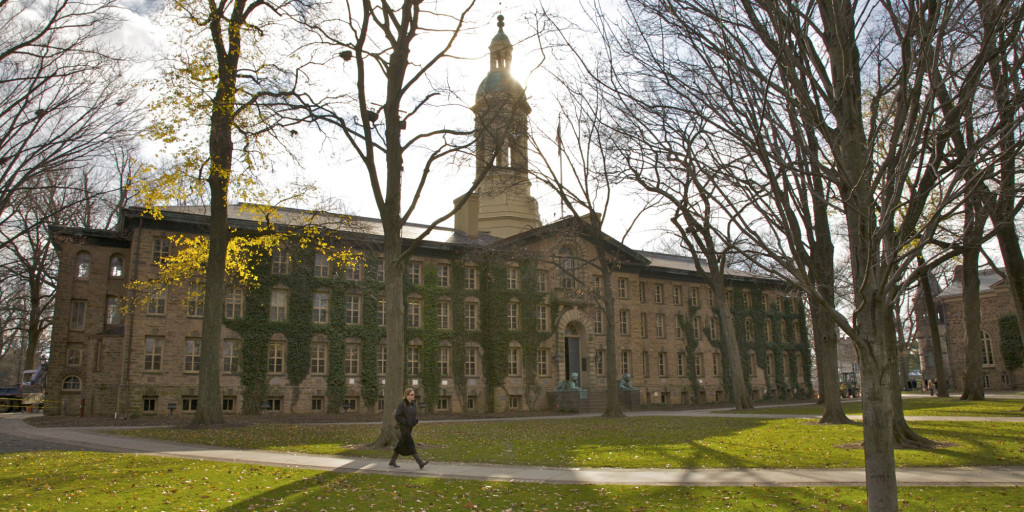
The US Department of Education’s Office for Civil Rights has concluded an investigation into admissions practices at Princeton University. The Office reports that it has found no evidence that the school discriminates against Asian American applicants.
The investigation was initiated by a complaint filed in 2006 by an Asian American applicant who contends that he was rejected from the school on the basis of his race. Jian Li asserted in 2006 that Princeton holds Asian American applicants “to a higher standard” than other applicants.
[Li’s] complaint states that he received 800s on the mathematics, critical reading and writing parts of the SAT, that he graduated in the top 1 percent of his high school class, that he completed nine Advanced Placement classes by the time he graduated, and that he had been active in extracurricular activities as well — serving as a delegate at Boys State, working in Costa Rica, etc.
The problem, Li said, was his Chinese background. Li said that he left ethnicity blank on his application. But whilePrinceton’s application indicates that question is optional, it doesn’t list as optional other questions that Li answered: his name, his mother’s and father’s names, his first language (Chinese), and the language spoken in his home (Chinese). Li said that this information made his ethnicity “unequivocally” clear to Princeton.
If you’re thinking that Li’s reasoning here is a little thin, you’re not alone. Li’s conclusion that his race had something to do with the outcome of his Princeton application is such a massive leap in logic, it alone should disqualify Li from admission to Princeton.

Moreover, the Office of Civil Rights (OCR) agrees.
In a twenty page letter published today, the OCR announced that it has found no evidence that Princeton University engages in discriminatory practices in their use of holistic review — which includes limited, non-determinative and narrow considerations of applicant race and ethnicity — during the admissions process.
The OCR provides in great detail the process whereby Princeton considers applicants to their school and, not surprisingly, the procedure is very similar to the sort of holistic review already described on this blog. At Princeton, OCR reports that admissions is a “multi-stage” process, and that racial or ethnic information is used only as one of several factors considered in the initial assessment of applicants; subsequent detailed review of each applicant does not include consideration of race or ethnicity.
The OCR considered Li’s application against 11 other applicants from his high school and found no evidence that Li’s race had any bearing on the decision to wait-list him to Princeton. Instead, it seems that Li’s application suffered primarily due to a relatively weak portfolio of non-academic pursuits. Li ultimately attended Yale University, instead.
In general, the OCR found zero evidence that Princeton engages in illegal quotas, or that any Asian American applicant is considered or compared against any other Asian American applicant. They write:
OCR found that the University engaged in a holistic review process that considered each applicant as an individual. Asian applicants were not competing against only Asian applicants for admission; instead, each applicant competed against all other applicants for a coveted seat at the University. Further, applications were not sorted, read, or processed according to the race of the applicant. There were no quotas for any racial or national origin category of applicant. Applicants of different races and national origins were not judged by different criteria.
In conclusion, the Office of Civil Rights has once again found that the arguments of those who oppose affirmative action — and particularly the rhetoric of those who oppose it on the grounds that it discriminates against Asian Americans — lack any sort of merit.
Race-conscious affirmative action is not equivalent to Chinese exclusion. It is not a violation of the Fourteenth Amendment.
Race-conscious affirmative action acknowledges the the disproportionate impacts of systemic racism to selectively disadvantage some students over others, and is a necessary mechanism ensuring equality in higher education access for all students. It opens the gates of the Ivory Tower to all students interested in learning. Historically and today, it helps AAPI students both by improving the quality of education by increasing classroom diversity, and by ensuring equal educational opportunities for underprivileged and underrepresented AAPI applicants. These are benefits that a majority of AAPIs understand and appreciate.
Earlier this year, over 135 AANHPI civil rights organizations declared strong and vocal support for race-conscious affirmative action in higher education. But, the fight to protect educational access for all students remains heated. Earlier this year, a much smaller coalition of Asian American groups filed an OCR complaint — similar to the one filed by Li in 2006 — against Harvard; even though that complaint was ultimately rejected, that coalition has now revised their complaint and submitted it as an amicus brief in the pending Fisher Supreme Court case. That the Supreme Court, the Office of Civil Rights, and the Department of Education has repeatedly failed to find evidence that corroborates their theory that affirmative action discriminates against Asian American applicants, they persist in these (arguably, completely baseless) attacks on affirmative action and holistic review.
So long as folks within the community continue to deny the overwhelming evidence that their assertions are unfounded, race-conscious affirmative action — and the educational opportunities it facilitates for this nation’s underrepresented Black, Latino, Native, and AAPI students — remains under threat; particularly as the Fisher case is scheduled to receive a new hearing before the Supreme Court next year.
Thus, I urge you to stay committed to educating yourself and other members of our community on the necessity of race-conscious affirmative action.
